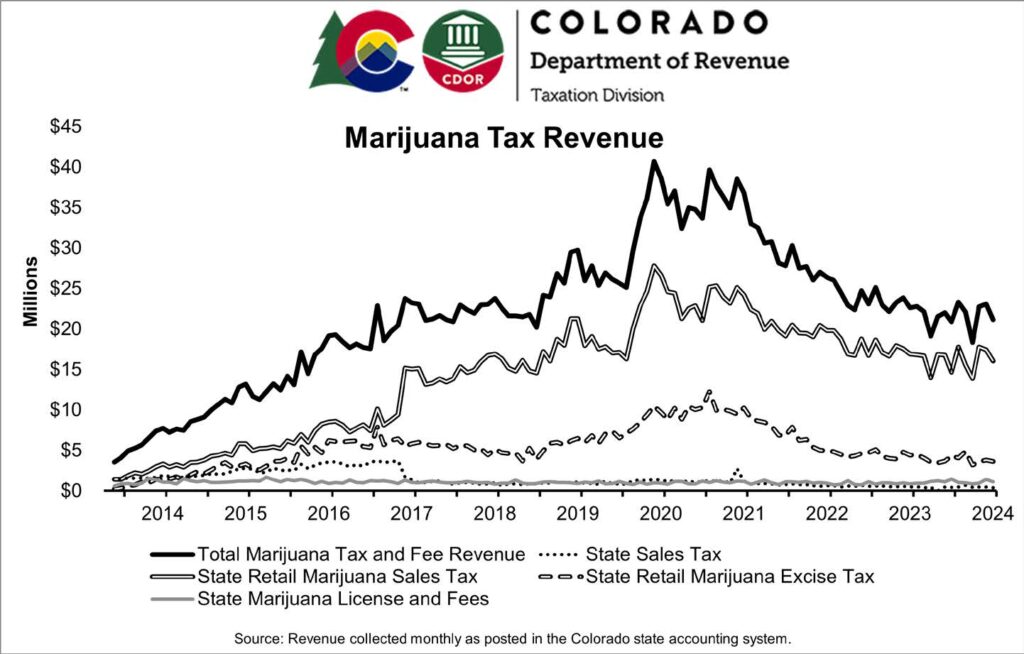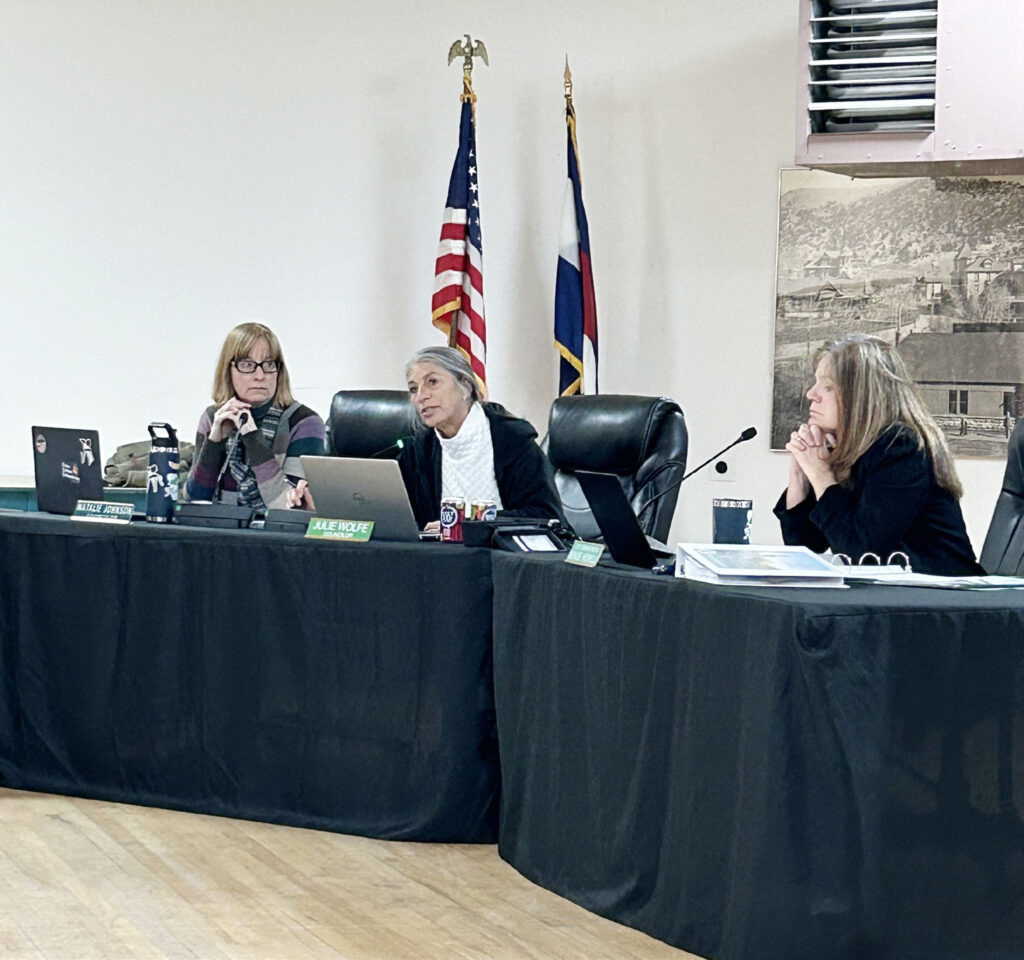With the success of Colorado Springs’ recreational marijuana ballot measure, members of the Manitou Springs City Council are concerned about the impact on Manitou’s sales tax revenue.
“Does the fund balance ending in 2025 take into account the marijuana vote in Colorado Springs?” asked Councilor Julie Wolfe during the first reading of the 2025 budget during Tuesday’s City Council meeting.
“It does not,” responded Rebecca Davis, the finance director for Manitou Springs. “It looks like we’ll have to be bringing the budget back probably in the first half of the year to amend it.”

Since 2014, Manitou Springs has been the only city in El Paso County that has allowed the sale of recreational marijuana, effectively cornering the regional recreational marijuana market. Marijuana sales tax revenues are lumped into the general sales tax on the city’s budget. In 2023, Manitou Springs collected $13.2 million in taxes, which is the majority of the city’s revenue. Due to policy set by the Department of Revenue, the city is unable to disclose exactly how much tax revenue comes from the two dispensaries. According to state law, providing sales tax revenues to the public would be detrimental to the existing businesses when there are only two.
Wolfe noted that the impact on tax revenue could be substantial. “We may lose half of our income because of the marijuana taxes,” she said. “I think we should have some analysis on how much might we lose next year, and if so, how best to prepare for that.”
Councilor John Shada provided his own calculations for potential budget shortfalls. “I’ve been looking at that [Colorado Springs Ballot Measure] 300 and the state numbers,” he said. “Given that there’s been a 13% reduction in retail sales statewide, I’ve been running the numbers in terms of what the state was already seeing … my rough calculations are that we’re probably in the hole by about $1.3 million next year in the general sales tax category that includes the retail marijuana. … I was estimating that basically we’re going to be short almost 16.5% in general sales tax. It seems to me if there’s some discretionary things that we can delay expenses on in the first part of the year to give us a little bit of a cushion we should consider those things immediately in the budget.”
There’s a lot of questions yet. Denise Howell

City Administrator Denise Howell noted that there is still a degree of uncertainty with Colorado Springs. “There’s a lot of questions we don’t have answers to,” she said. “We’ve called the state to figure out what this means, and if that means they’ll be opening in 2025 or if they’ll have to wait until 2026. As you know, their council passed another ordinance. There’s a lot of questions yet. I recommend that about March, hopefully, March or April, we have a better sense of what’s going to happen.”
Before Colorado Springs voters approved Ballot Measure 300, the Colorado Springs City Council passed a zoning ordinance that essentially banned any recreational sales within city limits. The ordinance prohibited recreational sales within a mile of schools, daycare facilities, and drug and alcohol treatment centers, effectively preventing recreational marijuana sales throughout Colorado Springs.
Howell said that she has taken precautions in the event of a budget shortfall next year. “I told the department heads a week ago when we had our department head meeting that the first quarter of next year that we are not to spend anything except for those that we have grants,” she said. “I’m thinking by March we’ll have a good sense of where they’re going.”

